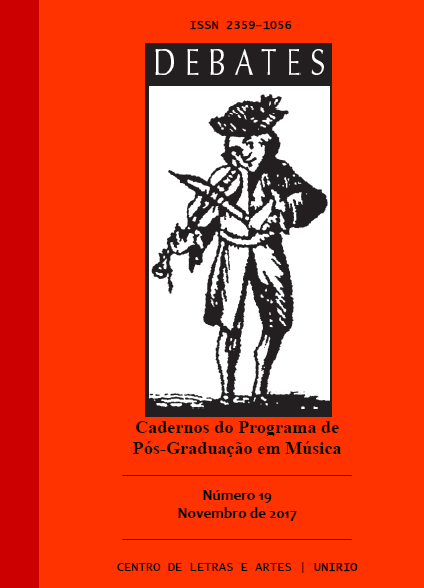O funk e a educação: etnomusicologia e pesquisa-ação participativa em contextos diversos
Resumo
Resumo: Este artigo se localiza no campo da etnomusicologia e da educação decolonial. Visa contribuir no debate sobre a inserção formal dos conhecimentos dos mestres de tradição oral no campo da educação. Assim, a metodologia aqui privilegiada é a pesquisa-ação participativa, na intersecção de uma pesquisa de mestrado e outra de doutorado, com a participação de um mestre do saber da cultura funk. Dentro de três diferentes contextos: uma escola básica de um bairro da periferia da cidade do Rio de Janeiro, a Universidade Federal do Estado do Rio de Janeiro (UNIRIO) e uma das unidades do Departamento Geral de Ações Socioeducativas (DEGASE), pudemos executar na prática os pressupostos teóricos de uma possível educação decolonial e antirracista. A proposta principal consiste em não hierarquizar verticalmente os saberes acadêmicos em detrimento dos não acadêmicos, na convivência de diferentes epistemologias dentro de um só contexto. Neste caminho, esta pesquisa contribui com novos apontamentos e desdobramentos para a educação musical no campo da etnomusicologia.
Palavras-chave: Etnomusicologia. Educação Musical. Funk. Decolonialidade.
Funk and education: etnomusicology and research-action
in different contexts
Abstract: This article is in the field of ethnomusicology and decolonial education. It aims to contribute to the debate about the formal insertion of the oral tradition masters' knowledge in the field of education. Thus, the privileged methodology here is participatory action research, at the intersection of a master's and a doctoral research, with the participation of a master of knowledge of funk culture. Within three different contexts: a basic school in a suburb of the city of Rio de Janeiro, the Federal University of Rio de Janeiro (UNIRIO) and one of the units of the General Department of Socio-educational Actions (DEGASE), we were able to perform in the the theoretical assumptions of a possible decolonial and anti-racist education. The main proposal consists in not vertically hierarchizing the academic knowledge to the detriment of non-academics, in the possibly harmonious coexistence of different epistemologies within a single context. In this way, this research contributes with new notes and unfoldings for the musical education in the field of ethnomusicology.
Key-words: Ethnomusicology. Musical Education. Funk. Decoloniality.


